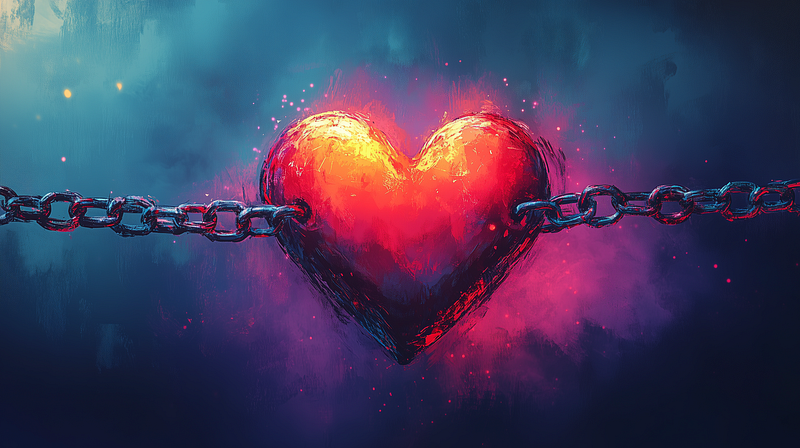Trapped by Fear: How “Loss Aversion” is Sabotaging Modern Relationships
Loss Aversion in Love: Why Fear of Heartbreak Overshadows Real Intimacy in Modern Dating

Loss aversion is that instinct that pushes us to avoid losing something more fiercely than we chase the possibility of gaining something better.
In relationships, it shows up as a fear so strong it can override our natural curiosity about a new partner.
Instead of entering fresh connections on equal footing, we approach them with armor forged from old heartbreaks — guarding ourselves from feeling that pain again.
Carrying Baggage into New Beginnings
It’s natural to want to avoid mistakes that left you wounded, but sometimes this translates into punishing the new partner for what the old one did.
You bring suspicions and unspoken tests into ever conversation.
You assume they’ll repeat patterns you saw before, so you demand concessions or rigid standards, just to feel safe.
The problem is that this “safety” often kills authenticity: you’re so busy preempting hurt that you can’t see the person in front of you without the distorted lens of past baggage.
The Modern Dating Scene: The Boiling Pot
Add in today’s rapid-fire culture of swiping left or right, and it’s no wonder everyone feels on edge. People move from one potential match to another in record time, rarely pausing to reflect on lessons learned.
The sheer volume of options can make you feel that if someone isn’t perfect right away, you should cut your losses and move on.
Loss aversion in this fast-paced environment intensifies: with so many perceived opportunities, risking emotional investment feels even more dangerous.
Where it gets paradoxical is the way this protective stance can isolate you. You focus on protecting yourself from pain, but end up pushing away genuine opportunities for connection.
Real intimacy requires a willingness to risk vulnerability — to let someone see where you’re still tender, where you still hope. Yet if everything is filtered through the lens of “never again,” you might find yourself in a cycle of brief encounters that never gather enough trust to become lasting.
When Compromise Feels Like Defeat
Relationships have always involved some form of compromise, but these days, it’s common to see any request for adjustment as an attack on personal freedom.
You want to be accepted as you are, which is far. But then, when the other person asks you to meet them halfway, it can feel like your autonomy is under siege.
The irony is that both sides crave acceptance, but neither wants to bend. If you interpret every compromise as a defeat, building something stable and meaningful becomes nearly impossible.
Balancing Boundaries with Openness
Boundaries are healthy.
They keep you from repeating toxic dynamics. They remind you what’s genuinely important to you.
The catch is recognizing when those boundaries morph into walls — when they become so rigid that nobody can get close, even if they’re doing their best to understand your perspective.
Ideally, boundaries give structure to a relationship while openness allows room for growth.
Break the Cycle: Building Something Real
You can’t just will yourself to forget the pain of past relationships, nor should you try. But you can reframe it.
Look at each experience for what it was: a lesson in how to navigate love more honestly. This might mean giving a little more leeway to a new partner and being willing to communicate fears before they balloon into resentment.
It might also mean permitting yourself to trust that a fresh start really can be fresh, no old ghosts haunting every interaction.
Loss aversion can keep you from heartbreak, but it also keeps you from the best parts of falling in love: the hope, the surprise, and the genuine bond that emerges when two people drop their defenses just enough to meet in the middle.
The more you cling to what went wrong, the less space you leave for what could go right. The real victory is learning to let the lessons of your past guide you without letting them write your entire future.
That means allowing the risk of loss to coexist with the possibility of something extraordinary.
And in the end, it's that blend of cautious wisdom and daring openness that sets the stage for a truly meaningful connection.



